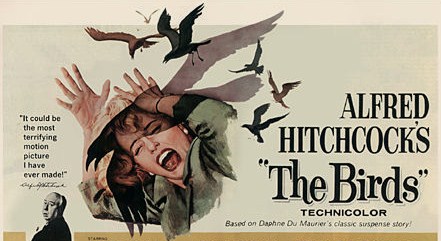Yesterday courts across Bernalillo experienced a two hour snow delay after Albuquerque was blanketed with a layer of snow. This moment I’m looking out of my office window towards Metro court and the intersection of 5th and Lomas. The weather is gloomy, overcast and definitely isn’t yelling TGIF! The good news, however, is that spring is just around the corner. Well, good news for me because spring is my favorite season.
For some people spring time equals allergy time – a time of year when pollen wafts through the air violently attacking innocent bystanders like a scene from Alfred Hitchcock’s “The Birds.”
Speaking of pollen and allergies – do you take allergy medicine? For that matter do you drink coffee, Coca-Cola, smoke cigarettes, take Aspirin, Tylenol, drink workout supplements, energy boosters – or consume basically any product that is mas-produced in America and contains any number of legal drugs?
If you answered yes to any of these questions then you could be charged with DWI for driving under the influence of any of these products. You see – in the State of New Mexico – it is “. . . unlawful for a person who is under the influence of any drug to a degree that renders the person incapable of safely driving a vehicle to drive a vehicle within this state.” See N.M.S.A. § 66-8-102(B), (emphasis supplied).
Right now you might be thinking to yourself: “Sure, I guess that they could charge me with DWI for driving under the influence of any of the products above – but let’s come back to a place called reality – they would never charge me for driving under the influence of those drugs, only illegal drugs.”
Think again.
You can be charged with DWI for driving under the influence of Antihistamine, the drug contained in most over-the-counter allergy medications sold at virtually every retailer across America.
A case is currently pending in New Mexico where the driver was stopped by an officer after the driver hit the curb.
After the stop, the officer “observed” signs of intoxication that virtually every officer lists in every DWI. In almost every DWI case that I have ever encountered the officer lists that the driver had at least two of the following three signs of intoxication: (1) blood shot watery eyes, (2) slurred speech, (3) scent of alcohol.
The officer always lists at least two of the three elements above because the officer needs something called “reasonable grounds” to expand the basis for the stop – i.e. hitting the curb – to perform an investigation for possible DWI.
Anyways, based on these “indications of intoxication” the officer believed that the driver was driving under the influence of alcohol or drugs. At this point the officer had the driver exit the vehicle to perform the standardized field sobriety tests. Low and behold these self-administered and subjectively evaluated tests confirmed the officer’s sneaking suspicion that the driver was driving under the influence of alcohol or drugs.
The driver was placed under arrest and readily submitted to a breath test. The test results were zero because the driver hadn’t consumed any alcohol. The officer then asked the driver to submit to a blood test that would detect the presence of any drugs in the driver’s system. The driver readily submitted to the blood test because the driver certainly wasn’t under the influence of a “drug.”
The results of the blood test demonstrated that the driver did in fact have a drug in his system: Antihistamine – the ingredient found in the driver’s allergy medicine.
Over one year after the arrest the driver was charged with driving while intoxicated, based on the blood results that demonstrated that the driver had Antihistamine in the driver’s system.
Keep this story in mind the next time that you strike a curb, forget to use your turn signal or seat belt, make a running stop at a stop sign, speed, swerve within your lane, or any number of potential offenses while you are under the influence of any drug.
At that point there’s a chance that the officer might notice two out of the following three indicators of intoxication: (1) blood shot watery eyes, (2) slurred speech, (3) scene of alcohol.
No doubt you will then perform “poorly” on a series of tests that are basically pop quizzes designed to test your dexterity, coordination and ability to follow directions while stressed and under pressure. If this sounds too good to be true, these same pop quizzes will be administered and judged by a person that already believes you are guilty of driving while intoxicated.








